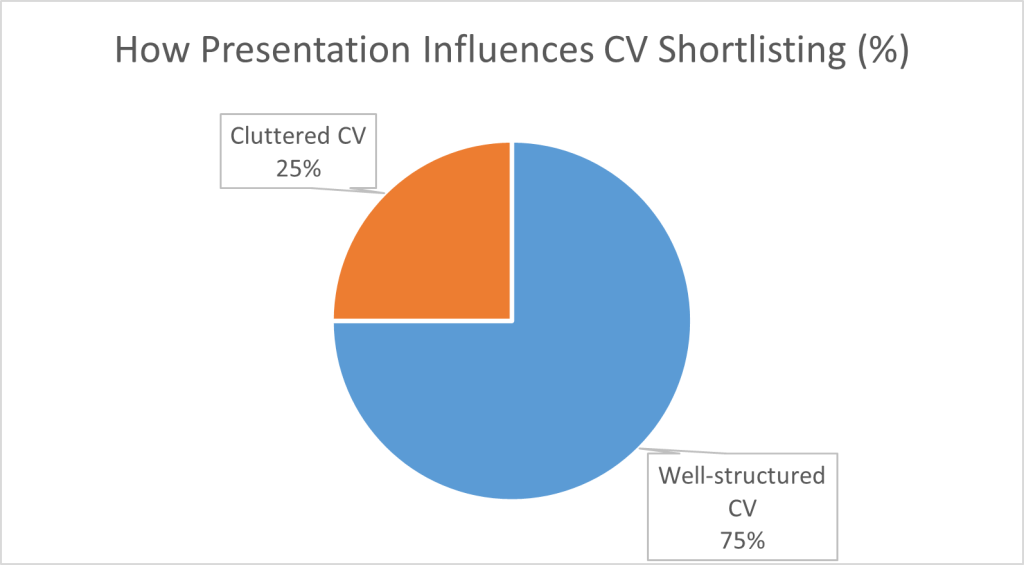The Silent Killers of a Good CV
The CV you submit is like you are marketing your skills, education, work experience, and accomplishments. You show that you are a potential employer and the right person for the applied job.
And yet, creating a compelling CV is easier said than done.
There are high chances that you are making some of the common mistakes that can cost you in landing the job. In this blog, we are going to learn about some of those common mistakes. So, let’s explore them and get our next CV right.
Learn From the Mistakes
When we explore some of the common mistakes, it is clear that we will avoid them to transform our CV from an average to an outstanding one.
1- When Words Don’t Add Up
Before a recruiter views your skills, they will evaluate your writing. Mistakes in the language can instantly affect your professionalism. Therefore, if you think you are not sure about the language usage in your document, ensure that you get a trusted team on board for CV writing Carlow.
- Blunders in spelling suggest carelessness. Recruiters will interpret it as a lack of attention to detail.
- Improper sentence structures make your CV hard to read, and the achievements appear less impressive.
- Using overly informal words reduces the professional appeal of the CV.
2- Beyond Responsibilities
Listing what you were assigned to do is different from showing what you actually accomplished. Employers look for proof that you have delivered the results.
- Stating you were responsible for sales might sound vague. Instead, you can mention that your work increased the sales by 20%.
- Without stating the numbers, the impact can never be visible. Achievements backed by data are more persuasive.
- Recruiters can guess your duties from your job title. What matters is your performance.
3- Misleading The Details That Backfire
Accuracy is non-negotiable. A slight inaccuracy can cause distrust and threaten your application.
- An outdated phone number or email address means you will miss the critical calls.
- Your inflated figures might be impressive initially, but they collapse under verification.
- Mismatched timestamps raise suspicions about your credibility.
4- Using The Wrong CV Template
Remember, all the CV templates will never have the same effect. Some of them are visually appealing, easy to read, and stand out from the pile of other applications.
Other CV templates feature unnecessary and distracting graphics, unprofessional fonts, and a lack of consistency. These elements make them a nightmare to go through.
5- The Trap Of Tired Phrases
It is a common to use buzzwords, and clichés can dilute the uniqueness of your CV.
- Using terms like hardworking, team player, or self-starter shows that your content lacks depth.
- If you are claiming that your work was result-driven, then you need to prove it with concrete examples.
- Employers go through hundreds of CVs in a day. A repetitive language can fail to capture the attention.
6- Include References
Most candidates believe that including references on a CV will make their document more transparent and credible. However, this is not true. A CV is the beginning of the job application process, and references are usually requested from the recruiters.
In a resume, references are really nothing more than a list of names. It takes up the space; therefore, you should focus on other sections like the skills, projects, etc.
7- The Presentations Speak Louder Than Words
The design of a professional CV is as important as its content. An unorganized layout can obscure strong achievements in a cluttered design.
- Avoid using too many fonts, colors, and graphics, as they can make your CV hard to read.
- Poor alignment with uneven spacing can distract recruiters from focusing on your skills.
- Without clear headings, recruiters struggle to skim through your information.

8- One-Size-Fits-All Never Works
Sending the same CV to multiple job applications often results in rejection. Employers want to see the alignment with their specific role.
- By sending a generic profile, recruiters can easily spot such applications. They look for tailored documents.
- Most of the companies use applicant tracking systems (ATS) to track the digital applications. Without using the right terms, you may miss the opportunity for your CV to reach human eyes.
- Your CV must reflect only those jobs that align with the new position. Including everything can bury the most important details.
9- The Red Flags Of Frequent Changes
Gaps in careers and frequently switching jobs can create doubts in a recruiter’s mind if you fail to justify the reasons.
- If you have taken a gap between your careers for any reason, ensure that you have provided a clear justification. Unexplained gaps can signal unreliability.
- In the same way, you address the details of constantly job-hopping, which suggests your lack of stability.
- If you switched a position due to progress in your career, this is strong evidence. But transitions without any growth weaken your story.
| Employment Pattern | Recruiter’s Impression | Suggested Fix |
| Long unexplained gaps | Questionable reliability | Add freelance, courses, or volunteering |
| Frequent job switches | Lack of commitment | Highlight transferable skills |
| Steady progression | Positive career growth | Maintain a clear timeline |
10- Adding More Can Distract From Your Point
Writing a lengthy CV is a waste of time and energy. Your recruiters will lose interest. Employers spend just a few seconds scanning through the document before they decide either to call out for an interview or place it in the rejection pile. Therefore, clarity is essential than the length.
- In general, a CV must not exceed two pages. More pages lead to overwhelming your recruiters.
- Adding irrelevant details like your hobbies, outdated courses, or school awards clutters your profile.
- Longer paragraphs are harder to scan compared with the concise bullet points.
The Final Comment
A professionally written CV opens the doors to a dream career. You need to look for minor errors, such as spelling issues, vague duties, or poor formatting. Missing out on any of these errors can push your application aside.
Recruiters look for clarity, honesty, and achievements that match your role. Through tailoring a CV, focusing on the accomplishments, presenting information, and keeping it short, you can improve your chances. This document is not just a piece of paper, but your personal story that is presented professionally.

